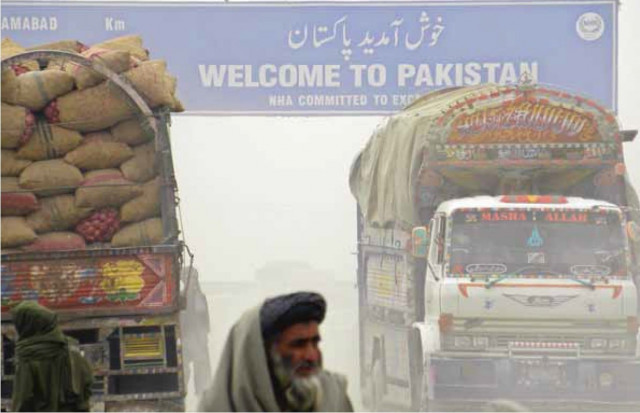Pakistan resumed Afghan transit trade on a phased basis after a 10-day suspension, following an “interim ceasefire agreement” reached with the Afghan Taliban government in Doha. Clearing of 300 vehicles has begun. Around 300 vehicles had been stranded at various points during the suspension.
Transit trade operations have been restored via the Chaman route. The Directorate of Transit Trade (Customs) has issued a detailed directive outlining that cargo operations will be completed in three phases.
Under the directive, normal transit trade will resume on a “First In, First Out” (FIFO) basis after the existing backlog is cleared.
In the first phase, nine vehicles that were sent back from the Friendship Gate due to the border closure will be cleared. These vehicles will undergo reweighing and scanning and in case of discrepancies 100% inspection will be carried out.
Read: FBR suspends Afghan transit trade due to border unrest
In the second phase, 74 vehicles that were returned from the NLC Border Terminal Yard will be processed. These will also be re-weighed and scanned and any discrepancies will lead to an extensive search.
In the third phase, 217 vehicles currently stationed at Halting Yard will be cleared and allowed to cross the border.
The directive also states that photographs of all returned or stopped vehicles will be taken at the Friendship Gate and recorded to ensure transparency and proper documentation.
Read: Explained: Pakistan-Afghanistan border conflict
The resumption of transit trade is expected to bring relief to traders, transporters and cargo operators who suffered significant losses during the border closure. According to officials, security and inspection measures have been further tightened in the resumed trading operations to prevent smuggling or illegal trade.
Tensions between Pakistan and Afghanistan intensified recently following the Afghan fire at several locations in Khyber-Pakhtunkhwa, prompting swift military retaliation. Several Afghan positions were destroyed and dozens of Afghan soldiers and militants were killed.
Read also: Pakistan and Afghanistan agree on immediate ceasefire in Doha talks
Pakistani officials said on October 11 that Pakistan had closed border crossings along the 2,600 km border with Afghanistan. The two main border crossings with Afghanistan, at Torkham and Chaman, and at least three smaller crossings, at Kharlachi, Angoor Adda and Ghulam Khan, were closed, local officials said.
On 19 October, Pakistan and Afghanistan agreed to an immediate ceasefire during talks in Qatar. The two sides agreed to meet on October 25 in Istanbul to discuss “detailed issues”.
The Chaman border is considered the most important land trade route between Pakistan and Afghanistan, through which dozens of trucks and cargo shipments move daily between the two countries. Recovery of transit trade is expected to revive cross-border commercial activity and improve bilateral trade relations.



